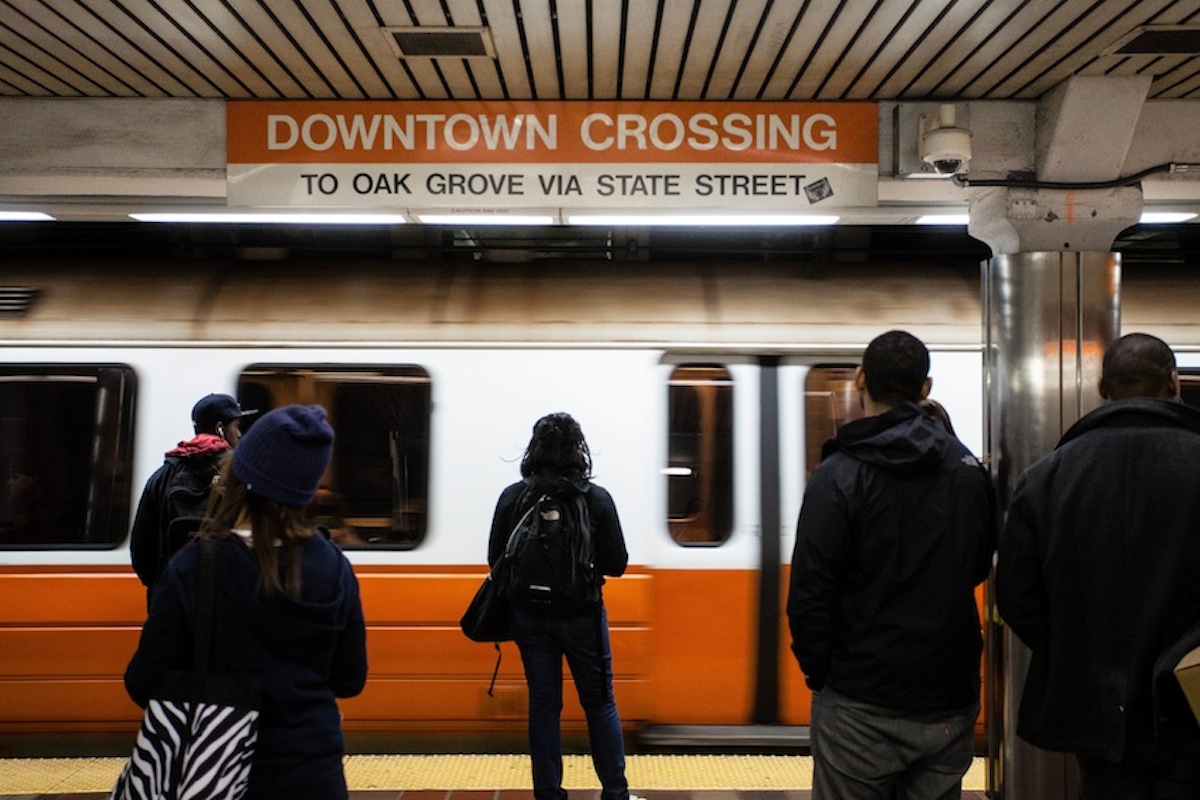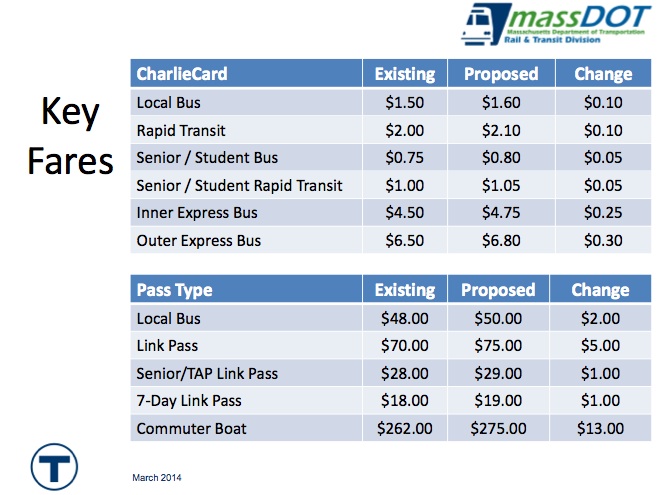Get Ready For Another MBTA Fare Hike

Photo By Alex Lau
Update, May 14:
The Massachusetts Department of Transportation’s Board of Directors approved of a 5% fare hike for riders that take the MBTA. The fare increase will hit riders’ wallets beginning July 1. The increase will bring the price of a one-way ticket on buses up 10-cents, from $1.50 to $1.60, and the price for rapid transit options like the Blue, Green, Red, and Orange Lines up from $2 to $2.10.
Earlier:
For the second time in as many years, the price to ride the MBTA is going up. But luckily, the cost increase doesn’t cut quite as deep as the spike in fares that riders faced in 2012.
According to a proposal floated by transit officials on Tuesday, during a MassDOT Finance and Audit Committee meeting, passengers that rely on public transit to get around will likely see a 5% uptick in fare prices beginning July 1. The increase will bring the price of a one-way ticket on buses up 10-cents, from $1.50 to $1.60, and the price for rapid transit options like the Blue, Green, Red, and Orange Lines up from $2 to $2.10.
The plan calls for monthly bus passes to increase by $2, bumping them up to $50 from the current $48 price, and monthly Link Passes, which can be used to transfer between buses and trains, are expected to increase in cost by $5, shifting from $70 to $75. The price of Commuter Rail passes will also go up, depending on the zones and distance traveled.
Below is a snapshot thats shows just some of the changes that riders can expect to see:

Elderly and disabled riders that use the T’s paratransit service “The Ride” won’t be impacted by this set of increases, according to details of the proposal. Similarly, students will feel a minimal impact when the changes occur come summertime, as the T is decreasing the cost of a seven-day pass by $2. Both students and the elderly have staged multiple protests calling for cheaper, more affordable prices for each group so they can utilize the system.
The fare increase will pump between $20 and $25 million into the MBTA’s revenue stream, according to officials.
News of impending fare hikes isn’t something riders like to hear, however, the last time the MBTA raised the price to ride the T, in 2012, fares went up by 23%—a far cry from the modest proposal being laid out in this time around.
And for those who want to blame the MBTA for spiking the prices for tickets and passes, you might want to shift your attention to the state legislature and Governor Deval Patrick. The fare increase is mandatory, and is part of an extensive transportation bill passed last year that requires the T routinely roll out fare hikes in order to bring in more revenue on its own. Under the law, the T can’t raise the fares more than 5% percent every two years, however.
Before the hikes go into effect, transit officials will hold a series of public hearings to let riders know what the plan is, and just how much it will impact their daily commute. The MassDOT Board will vote on the proposed plans within 15 days of the final report delivered to them following the public comment series.

